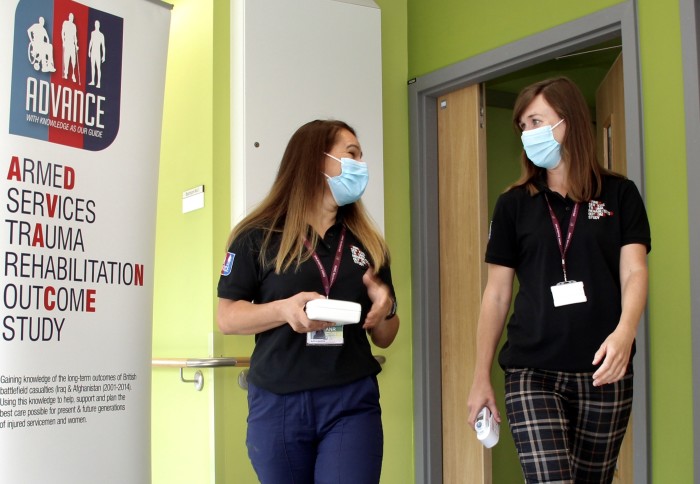Funding received to look at protein and metabolite blood markers in military

Grant awarded to analyse blood markers to look at molecular signatures of injury in members of the armed services through the ADVANCE Study.
Professor Marc-Emmanuel Dumas – from the National Heart and Lung Institute (NHLI) and the Department of Metabolism, Digestion and Reproduction – has been awarded a three year grant to analyse protein and metabolite blood markers to look at molecular signatures of injury in members of the armed services through the ADVANCE Study.
"This offers a unique window into the biochemistry of the participants and could help us identify molecular signatures from injury and catch early signs of their potential adverse effects" Professor Marc-Emmanuel Dumas
Professor Dumas and his team will be using proteomics and metabolomics technologies to look at biochemical markers in blood to establish the molecular signatures of injury and predict its long-term evolution. For example, one of the aims is to be able to predict cardiovascular and osteoarthritis risk trajectories in ADVANCE participants. Another long-term aim is to identify markers of injury and any underlying predisposition to injury, as well as early predictive markers of potential complications from injury.
State-of-the-art proteomics and metabolomics technologies will be used to gain a comprehensive understanding of the relative amounts of circulating proteins and metabolites in blood among the injured and non-injured groups. The relationship between circulating proteins and metabolites and their relationship to physical and psychosocial outcomes (e.g. blood pressure, body fat, arthritis, PTSD, anxiety and depression) will be investigated in conjunction with other core ADVANCE investigations.
The Armed Services Trauma Rehabilitation Outcome Study (ADVANCE) is a 20 year longitudinal cohort study looking at the long-term physical and psycho-social outcomes of battlefield casualties. Focusing on members of the UK Armed Forces following deployment to Afghanistan between 2002 and 2014. The study has been running for several years and has already completed detailed baseline assessments of over 1000 participants. Half of the study cohort have sustained serious battlefield injuries, and the other half are the non-injured control group.
The project is funded by the ADVANCE Charity, thanks to a generous donation from the Headley Court Charity. Professor Dumas said "We are very grateful to the Headley Court Charity and the ADVANCE Charity for awarding funding for this exciting project. We now have a rare opportunity to generate and analyse huge amounts of data from the participants’ bloods. This offers a unique window into the biochemistry of the participants and could help us identify molecular signatures from injury and catch early signs of their potential adverse effects".
Article supporters
Article text (excluding photos or graphics) © Imperial College London.
Photos and graphics subject to third party copyright used with permission or © Imperial College London.
Reporter
Dr Maija Maskuniitty
National Heart & Lung Institute